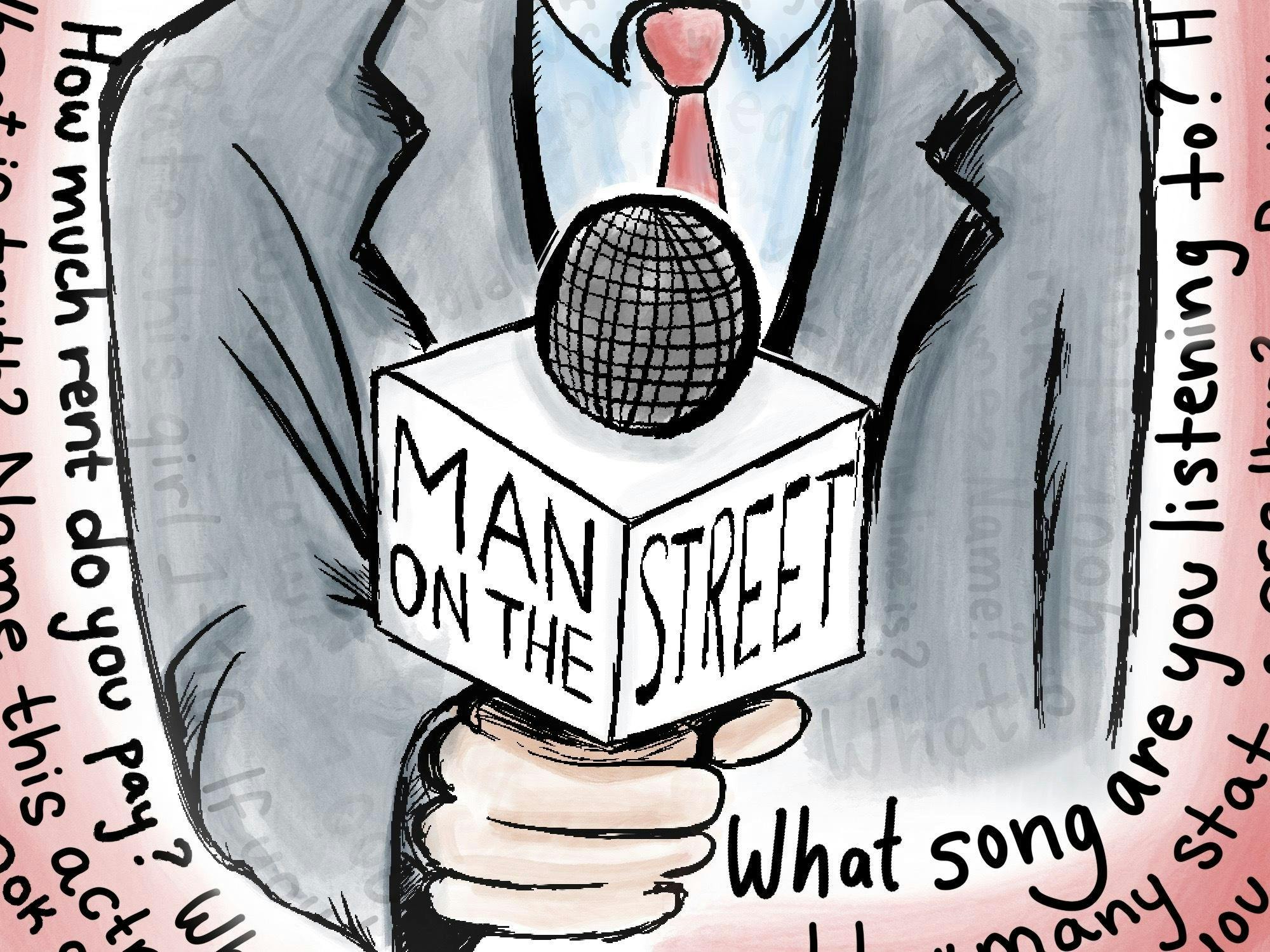If you've scrolled through TikTok or Instagram in the past few months, you may have come videos that involve enthusiastic influencers running up to a random passerby, shoving a mic in their face and then asking a slew of questions:
"How much do you pay for rent?"
"Can you rate this girl on a scale of 1-10?"
"What song are you listening to right now?"
The “man on the street” trend has even become popular among celebrities like Billy Eichner, Dave Chappelle and Eric Andre, among others. Its questions can cover topics ranging from harmless trivia to something more personal or intrusive. Many of the interviewees can be irritated or confused, which some content creators capitalize on to make misleading videos.
As a result, the internet has been a flurry of debate over whether the trend is an invasion of privacy or not.
Nancy Costello, director of the Michigan State University legal advice center First Amendment Clinic, said videos like these can border on defamation.
"Defamation is a libel claim," Costello said. "That's not necessarily privacy, so what you're talking about here, someone would bring a false light claim, (which) is an invasion of privacy ... and it's basically a cause of action for portraying someone in an unflattering light ... in words or pictures as something they are not. And it tends to be an easier claim than a libel or defamation claim."
Costello said that though both claims could be brought to a court of law, depending on the situation, content creators should be more careful with getting proof of consent and maintaining it.
"People can come back and sue you for this," she said.
Criminal justice sophomore Travis VanderMeiden said he likes "man on the street" interviews to a certain extent.
"I usually enjoy the trend if it's not a question that's like, really (making) somebody uncomfortable," Vandermeiden said. "I saw a video the other day of someone asking two girls who (were) obviously drinking some inappropriate questions. And that was kind of weird and a little bit annoying."
If the purpose of the video is just fun and casual, VanderMeiden said, then they can be entertaining and less of an invasion of privacy. When the people being interviewed are famous and not a random person, that can also feel more acceptable because celebrities are used to the spotlight, he said.
"Editing is a big part of it, too," VanderMeiden said. "So, you'd say one thing I say, they ask you a question and you answer them, and they cut it to make it seem like they asked a different question. That's pretty messed up."
Digital media and storytelling junior Sam Klassa is the producer of a telecaster show named "The Pop"at MSU. He said walking up to people, asking them to answer a question and then editing clips to appear unfavorable is "absolutely an invasion of privacy."
Klassa added that the trend has ruined interviewing in public overall and has turned many people off from interacting with media.
"(There's) definitely more hesitancy (and) more people are saying no, like they just don't want to be (interviewed)," Klassa said. "Especially if they're getting cut in a bad way ... they're really hesitant to say yes until I share (with) them, 'it's just you answering the questions, the funny parts will be what you say if (it is) funny.' Some people just answer the question funny, (but) we're not trying to make you look bad."
If someone tried to interview him on the street, Klassa said, he would not accept. However, he noted that interviews can provide a positive look into people's personalities.
"The only way you should do it (is) ask permission, ask consent and not be rude about it," Klassa said. "Rather than pushing them into a state of like, being hyper aware and panicking, or getting a camera shoved in their face."
Costello recommended that people maintain composure when approached on the street for an interview.
Support student media!
Please consider donating to The State News and help fund the future of journalism.
"Before they answer any questions .... they (should) remain calm and ask (the) man with the rolling video what they are doing, and what they will do with the video taken," Costello said. "And I would advise the person to run their own video or audio so they have proof of what actually occurs during the interaction."
Discussion
Share and discuss “How 'man on the street' interviews are becoming more intrusive” on social media.







